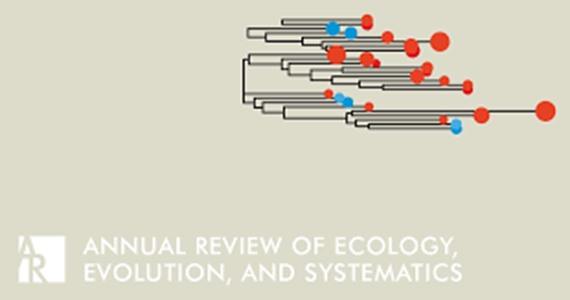Are Terrestrial Biological Invasions Different in the Tropics?
IF 11.2
1区 生物学
Q1 ECOLOGY
Annual Review of Ecology, Evolution, and Systematics
Pub Date : 2021-08-23
DOI:10.1146/annurev-ecolsys-012021-095454
引用次数: 16
Abstract
Most biological invasion literature—including syntheses and meta-analyses and the resulting theory—is reported from temperate regions, drawing only minimally from the tropics except for some island systems. The lack of attention to invasions in the tropics results from and reinforces the assumption that tropical ecosystems, and especially the continental tropics, are more resistant to invasions. We have critically assessed biological invasions in the tropics and compared them with temperate regions, finding relatively weak evidence that tropical and temperate regions differ in their invasibility and in the traits that determine invader success and impacts. Propagule pressure and the traits that promote adaptation to disturbances (e.g., high fecundity or fast growth rates) are generally favorable to invasions in both tropical and temperate regions. We emphasize the urgent need for greater investment and regional cooperation in the study, prevention, and management of biological invasions in the tropics. Expected final online publication date for the Annual Review of Ecology, Evolution, and Systematics, Volume 52 is November 2021. Please see http://www.annualreviews.org/page/journal/pubdates for revised estimates.热带地区的陆地生物入侵是否不同?
大多数生物入侵文献——包括综合和荟萃分析以及由此产生的理论——都是从温带地区报道的,除了一些岛屿系统外,对热带地区的研究很少。缺乏对热带地区入侵的关注源于并强化了一种假设,即热带生态系统,特别是热带大陆,对入侵的抵抗力更强。我们对热带地区的生物入侵进行了严格评估,并将其与温带地区进行了比较,发现相对薄弱的证据表明热带和温带地区在入侵性以及决定入侵成功和影响的特征方面存在差异。在热带和温带地区,繁殖体压力和促进适应干扰的性状(例如,高繁殖力或快速生长率)通常有利于入侵。我们强调迫切需要在热带生物入侵的研究、预防和管理方面加大投资和区域合作。预计《生态、进化和分类学年度评论》第52卷的最终在线出版日期为2021年11月。修订后的估计数请参阅http://www.annualreviews.org/page/journal/pubdates。
本文章由计算机程序翻译,如有差异,请以英文原文为准。
求助全文
约1分钟内获得全文
求助全文
来源期刊
CiteScore
19.90
自引率
1.70%
发文量
21
期刊介绍:
The Annual Review of Ecology, Evolution, and Systematics is a scholarly publication that has been in circulation since 1970. It focuses on important advancements in the areas of ecology, evolutionary biology, and systematics, with relevance to all forms of life on Earth. The journal features essay reviews that encompass various topics such as phylogeny, speciation, molecular evolution, behavior, evolutionary physiology, population dynamics, ecosystem processes, and applications in invasion biology, conservation, and environmental management. Recently, the current volume of the journal transitioned from a subscription-based model to open access through the Annual Reviews' Subscribe to Open program. Consequently, all articles published in the current volume are now available under a CC BY license.

 求助内容:
求助内容: 应助结果提醒方式:
应助结果提醒方式:


